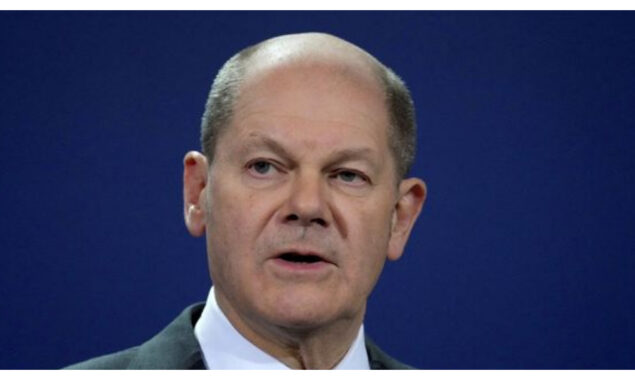Synopsis
LONDON, Germany may quit importing Russian oil this year, according to Chancellor Olaf Scholz. This demonstrates how critical it is for Europe's largest economy to avoid receiving energy from Russia following their invasion of Ukraine.

Scholz claims that Russia’s oil exports could be terminated this year.
LONDON, Germany may quit importing Russian oil this year, according to Chancellor Olaf Scholz. This demonstrates how critical it is for Europe’s largest economy to avoid receiving energy from Russia
Scholz was responding to a query from a journalist about whether he felt ashamed that EU countries were paying Russia billions of dollars for fossil resources.
At a news conference in London with British Prime Minister Boris Johnson, Scholz said, “We are actively working to get independent from the import of (Russian) oil and we think that we will be able to make it during this year.”
Germany has increased its efforts to lessen its reliance on Russian energy imports in the wake of the Ukraine crisis, with a ban on coal imports set to come into effect in August. New sanctions against Russia were adopted by the European Union this week, and coal imports from the country will be restricted for the first time next month.
Moscow refers to its onslaught as a “special military operation” aimed at demilitarising its adversary. That, according to Ukraine and Western supporters, is an excuse for an unjustified invasion.
Oil imports from Russia currently account for 25% of German imports, down from 35% before the invasion, while gas imports have been reduced to 40% from 55%. Imports of Russian hard coal were decreased to 25% from 50% before the invasion.
Stopping Russian gas imports is more difficult for Germany, which received 40% of its deliveries from Russia in the first quarter. By this summer, Germany plans to reduce its reliance on Russian gas to 24%. However, Europe’s greatest economy may have to wait until the summer of 2024 to stop relying on Russian gas.
“We are actively working to get independent from the necessity of importing gas from Russia,” Scholz said.
“This is, as you may imagine, not that easy because it needs infrastructure that has to be built first. So pipelines to the northern shore of Germany, regasification ports that make it possible for example that LNG ships could give their supply to the gas grid in Germany.”
Germany may be able to receive enough gas for the coming winter without needing to import it from Russia, according to a report released on Friday by the DIW economic institute. This might be accomplished by utilising alternative energy sources and reducing our energy use.
According to the analysis, Norway and the Netherlands could replace some of the void left by a Russian gas import restriction, while LNG deliveries to terminals in Belgium, the Netherlands, and France may secure further supplies.
For the latest International News Follow BOL News on Google News. Read more on Latest International News on oldsite.bolnews.com
Read More News On
Catch all the International News, Breaking News Event and Latest News Updates on The BOL News
Download The BOL News App to get the Daily News Update & Follow us on Google News.




